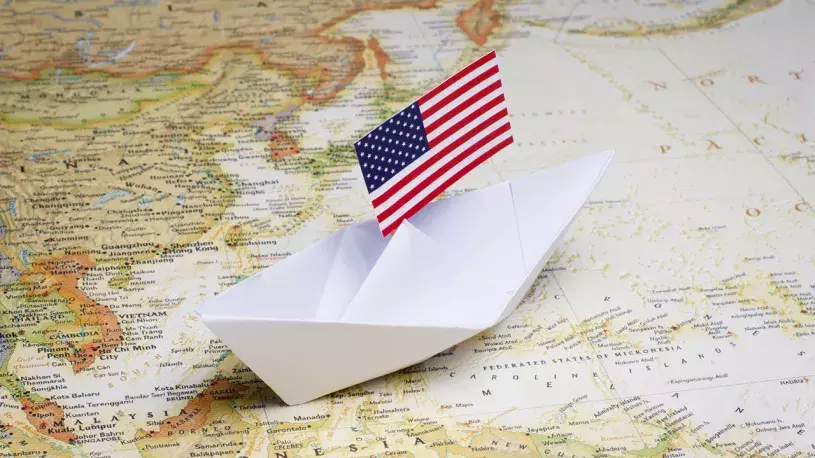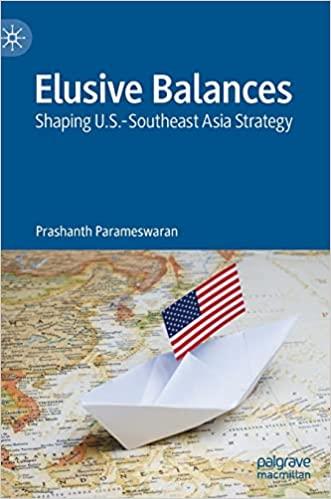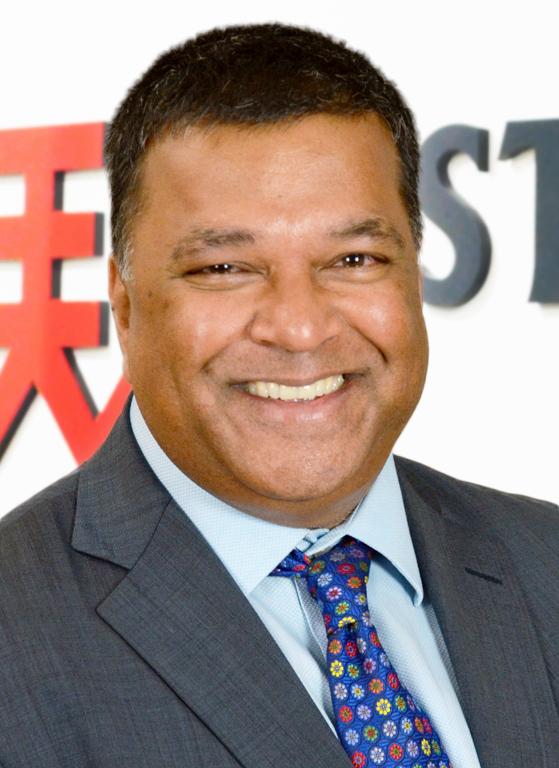Error message

The East-West Center in Washington invites you to an
Indo-Pacific Foreign Policy and Defense Series Webinar and Book Launch:
US Commitment to Southeast Asia in the Indo-Pacific Shadow:
Outlook Under Biden and Beyond
A Conversation With:
Dr. Prashanth Parameswaran
Fellow, Asia Program, Woodrow Wilson International Center for Scholars &
Columnist, The Diplomat
Dr. Satu P. Limaye (Moderator)
Vice President, East-West Center &
Director, East-West Center in Washington
East-West Center in Washington · US Commitment to Southeast Asia in the Indo-Pacific Shadow: Outlook Under Biden and Beyond

As the Biden administration advances its Indo-Pacific strategy, it faces a familiar challenge that US policymakers have grappled with for the past half-century: sustaining a level and distribution of foreign policy commitment to Southeast Asia that matches its growing importance amid other domestic, regional and global priorities. The discussion, drawn from Prashanth Parameswaran’s new book Elusive Balances: Shaping U.S. Southeast Asia Strategy, examined its argument that the US commitment challenge in Southeast Asia is rooted in balances US policymakers have to consider between shifts in power, threats and resources within the US domestic landscape and wider American foreign policy, which can make it challenging to forge sustained, calibrated commitment to the region. The discussion explored how this can be applied to practical cases in US policy, including within the context of the Biden administration Indo-Pacific strategy, based on hundreds of conversations with US and Southeast Asia officials and experts and the author’s own experiences in the United States and in the region.
Dr. Parameswaran also recently wrote on this topic for the East-West Center's Asia Pacific Bulletin series.
SPEAKER BIOGRAPHIES

Prashanth Parameswaran is a Fellow with the Asia Program at the Woodrow Wilson International Center for Scholars, based in Washington, D.C. and a Senior Columnist at The Diplomat, one of Asia’s leading current affairs magazines. His new book, Elusive Balances: Shaping U.S.-Southeast Asia Strategy, develops and applies a new “balance of commitment” model to examine the structural challenges U.S. policymakers face in balancing between shifts in power, threats and resources in forging U.S. commitment to Southeast Asia in the global context of American foreign policy across the past half-century. He has conducted grant-based field research on Southeast Asia politics and security issues across all eleven countries in Southeast Asia, consulted for companies and governments, and taught courses affiliated with the U.S. Department of Defense and the U.S. Department of State. He holds a Ph.D. and a Master of Arts from the Fletcher School of Law and Diplomacy at Tufts University focused on international security, international business and U.S. foreign policy, and received a bachelor’s degree from the University of Virginia where he studied foreign affairs and peace and conflict studies.

Dr. Satu P. Limaye is Vice President of the East-West Center and the Director of the East-West Center in Washington where he created and now directs the Asia Matters for America initiative and is the founding editor of the Asia Pacific Bulletin. He is also a Senior Advisor at CNA Corp (Center for Naval Analyses). He is a graduate of Georgetown University and received his doctorate from Oxford University (Magdalen College) where he was a George C. Marshall Scholar. He publishes and speaks widely on Indo-Pacific regional issues and supports various U.S. government, foundation, fellowship, and professional organizations. Among his current affiliations are Center for New American Security (CNAS) Task Force on the U.S.-Philippines Alliance, United States Institute of Peace (USIP) Senior Study Group on the North Pacific, Project 2049 Study Group on the U.S.-Australia Alliance, Korea Economic Institute (KEI) Advisory Council, and Global Taiwan Institute-Taiwan Asia Exchange Foundation project. Recent publications include: Southeast Asia’s choices: Economic, political, and geopolitical integration face complications, India in East Asia: Focused on the Quad and Border Disputes with China, and Maintaining the Technology Edge: Strengthening US and Indo-Pacific Alliances to Counter Chinese Technology Acquisition (with Rose Tenyotkin).
The East-West Center in Washington invites you to an
Indo-Pacific Foreign Policy and Defense Series Webinar and Book Launch:
US Commitment to Southeast Asia in the Indo-Pacific Shadow:
Outlook Under Biden and Beyond
A Conversation With:
Dr. Prashanth Parameswaran
Fellow, Asia Program, Woodrow Wilson International Center for Scholars &
Columnist, The Diplomat
Dr. Satu P. Limaye (Moderator)
Vice President, East-West Center &
Director, East-West Center in Washington
East-West Center in Washington · US Commitment to Southeast Asia in the Indo-Pacific Shadow: Outlook Under Biden and Beyond

As the Biden administration advances its Indo-Pacific strategy, it faces a familiar challenge that US policymakers have grappled with for the past half-century: sustaining a level and distribution of foreign policy commitment to Southeast Asia that matches its growing importance amid other domestic, regional and global priorities. The discussion, drawn from Prashanth Parameswaran’s new book Elusive Balances: Shaping U.S. Southeast Asia Strategy, examined its argument that the US commitment challenge in Southeast Asia is rooted in balances US policymakers have to consider between shifts in power, threats and resources within the US domestic landscape and wider American foreign policy, which can make it challenging to forge sustained, calibrated commitment to the region. The discussion explored how this can be applied to practical cases in US policy, including within the context of the Biden administration Indo-Pacific strategy, based on hundreds of conversations with US and Southeast Asia officials and experts and the author’s own experiences in the United States and in the region.
Dr. Parameswaran also recently wrote on this topic for the East-West Center's Asia Pacific Bulletin series.
SPEAKER BIOGRAPHIES

Prashanth Parameswaran is a Fellow with the Asia Program at the Woodrow Wilson International Center for Scholars, based in Washington, D.C. and a Senior Columnist at The Diplomat, one of Asia’s leading current affairs magazines. His new book, Elusive Balances: Shaping U.S.-Southeast Asia Strategy, develops and applies a new “balance of commitment” model to examine the structural challenges U.S. policymakers face in balancing between shifts in power, threats and resources in forging U.S. commitment to Southeast Asia in the global context of American foreign policy across the past half-century. He has conducted grant-based field research on Southeast Asia politics and security issues across all eleven countries in Southeast Asia, consulted for companies and governments, and taught courses affiliated with the U.S. Department of Defense and the U.S. Department of State. He holds a Ph.D. and a Master of Arts from the Fletcher School of Law and Diplomacy at Tufts University focused on international security, international business and U.S. foreign policy, and received a bachelor’s degree from the University of Virginia where he studied foreign affairs and peace and conflict studies.

Dr. Satu P. Limaye is Vice President of the East-West Center and the Director of the East-West Center in Washington where he created and now directs the Asia Matters for America initiative and is the founding editor of the Asia Pacific Bulletin. He is also a Senior Advisor at CNA Corp (Center for Naval Analyses). He is a graduate of Georgetown University and received his doctorate from Oxford University (Magdalen College) where he was a George C. Marshall Scholar. He publishes and speaks widely on Indo-Pacific regional issues and supports various U.S. government, foundation, fellowship, and professional organizations. Among his current affiliations are Center for New American Security (CNAS) Task Force on the U.S.-Philippines Alliance, United States Institute of Peace (USIP) Senior Study Group on the North Pacific, Project 2049 Study Group on the U.S.-Australia Alliance, Korea Economic Institute (KEI) Advisory Council, and Global Taiwan Institute-Taiwan Asia Exchange Foundation project. Recent publications include: Southeast Asia’s choices: Economic, political, and geopolitical integration face complications, India in East Asia: Focused on the Quad and Border Disputes with China, and Maintaining the Technology Edge: Strengthening US and Indo-Pacific Alliances to Counter Chinese Technology Acquisition (with Rose Tenyotkin).








